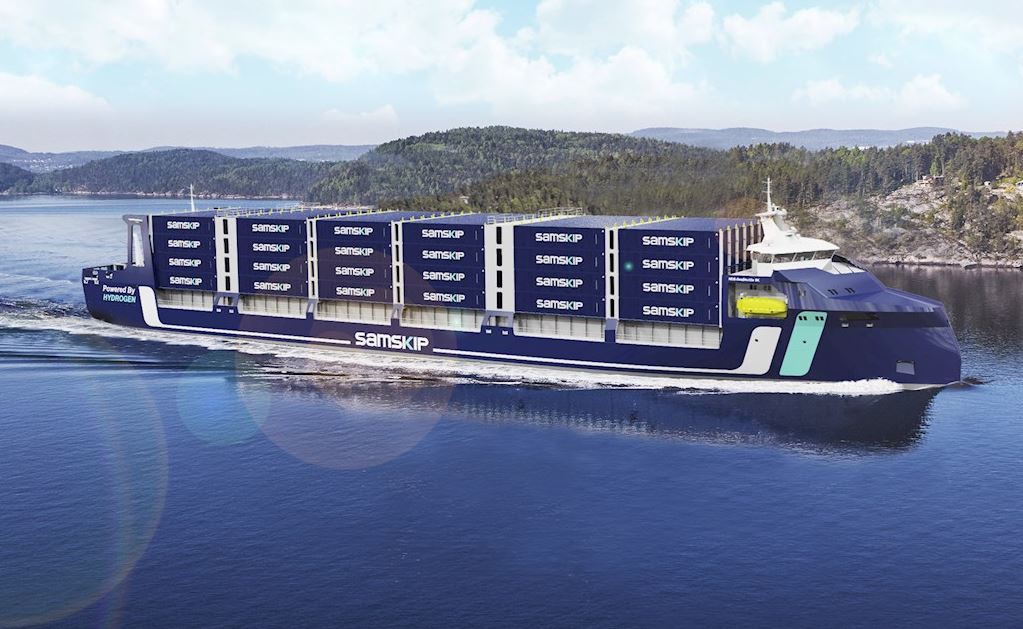The Netherlands – ABB will provide a comprehensive power distribution system for two newbuild short-sea container ships for the Samskip Group, headquartered in Rotterdam, the Netherlands.
The warships will be among the first of their sort in the world to run on hydrogen. Financial information was kept private.
The Cochin Shipyard-built 135-meter ships are scheduled for delivery in 2025’s third and fourth quarters, respectively. Between Oslo Fjord and Rotterdam, a distance of about 700 nautical miles, both ships will be in service.
ABB’s full solution
ABB’s full solution comprises the new, compact ABB Onboard DC Grid power distribution system, which will guarantee the best possible use of energy on board, in addition to the integration of hydrogen fuel cells. Additionally, the ships will be equipped with ABB’s energy storage solution control, which uses the leading automation technology in the market, ABB Ability System 800xA, to guarantee the efficient running of all onboard machinery. The vessels will have 24/7 remote assistance thanks to ABB Ability Remote Diagnostic Systems, which will improve safety and performance.
Through an electrochemical reaction, fuel cells convert the chemical energy of hydrogen into electrical energy. The entire energy chain will be clean if hydrogen is produced using renewable resources. One of the most promising approaches to advancing the shipping industry’s decarbonization goal is hydrogen fuel cell technology, which has the ability to drastically lower greenhouse gas emissions and boost energy effectiveness.
Fueled by hydrogen
Each of Samskip’s vessels will include a 3.2 MW hydrogen fuel cell, along with diesel generators for backup power. Each vessel will be able to prevent about 25,000 tons of CO2 emissions annually when fueled by fuel cells and by using green shore power at the port of call, according to the logistics firm, which aspires to attain net-zero by 2040. The ships are intended to function on par with Samskip’s traditional vessels even as they are setting new benchmarks for ecologically responsible operations.
GHG emissions
The project is in accordance with the International Maritime Organization’s (IMO) updated greenhouse gas (GHG) reduction policy, which relies on obtaining net-zero GHG emissions from international shipping close to 2050 and a promise to enhance the consumption of low-carbon fuels by 2030.
ENOVA, a state-owned company in Norway, is a co-funder of the project. ENOVA is a Norwegian organization that works under the Ministry of Climate and Environment to advance energy and climate technology as well as a transition toward more environmentally friendly energy production and consumption.





